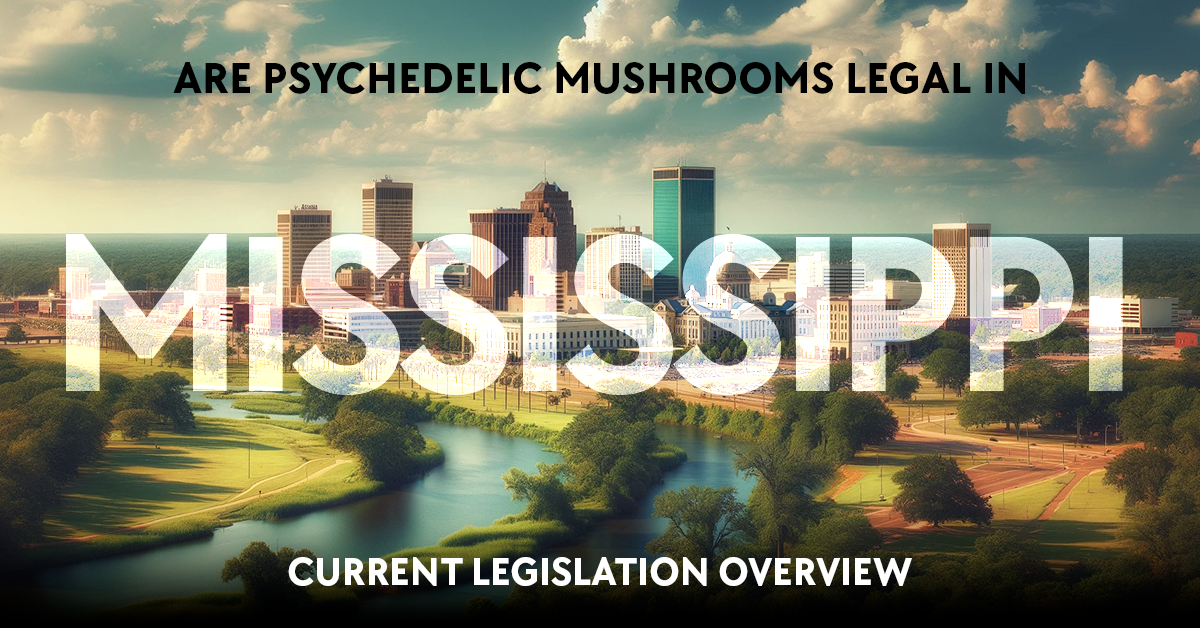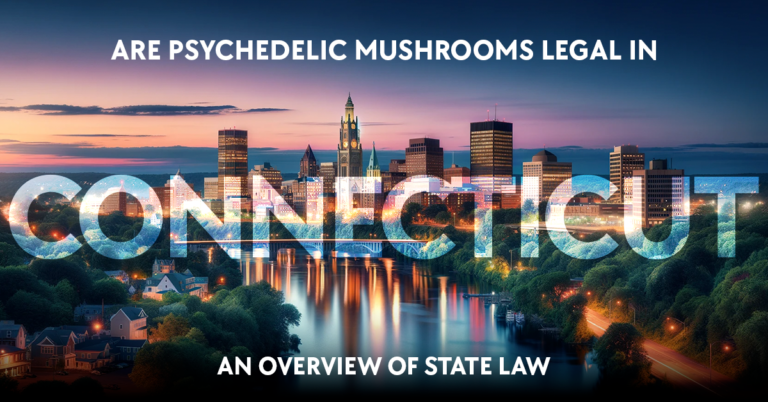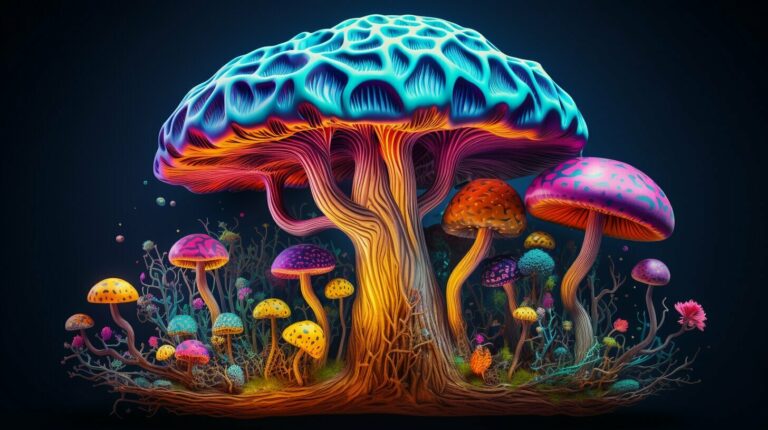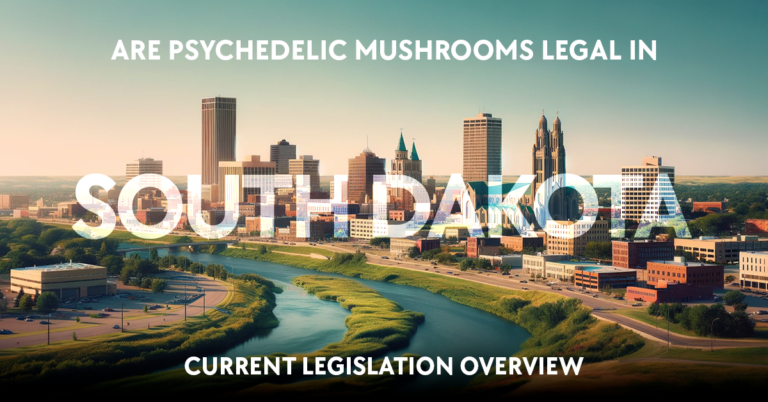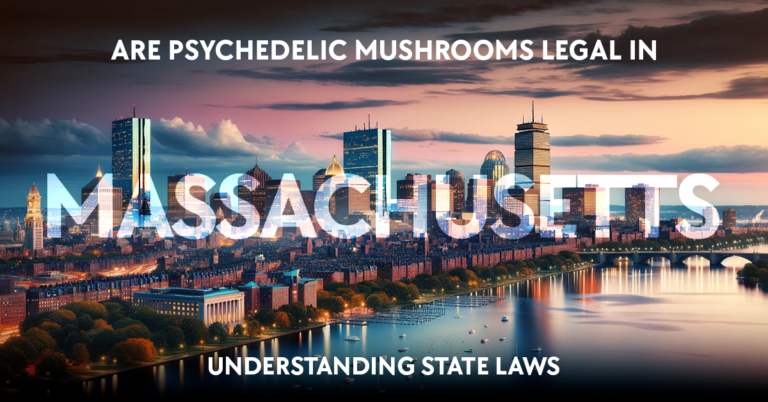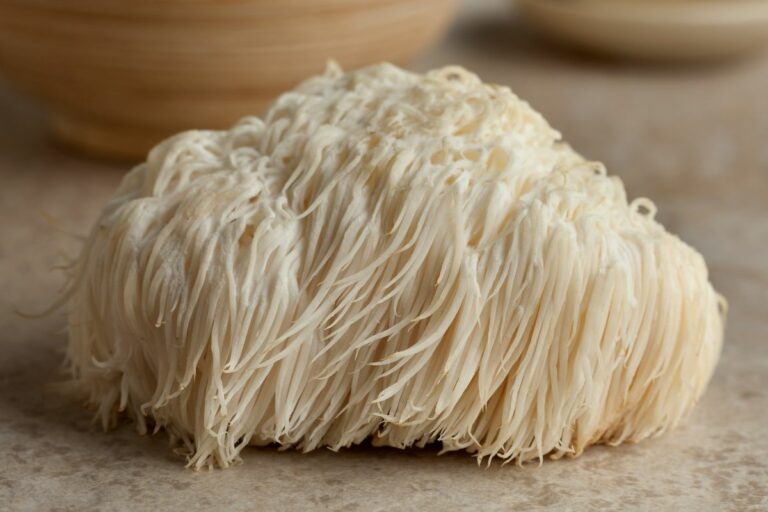In Mississippi, psychedelic mushrooms, also known as magic mushrooms, remain classified as Schedule I controlled substances. This means that they are illegal to possess, sell, or use for any purpose, including recreational and medicinal. Psychedelics, which include substances like psilocybin found in these mushrooms, are tightly regulated due to their potent effects and potential for abuse.

The legal status of substances can often be complex and varies significantly from state to state, but Mississippi maintains a conservative stance on drug laws. Possession of psychedelic mushrooms is considered a criminal offense and can carry severe penalties. It’s essential for you to be aware of these laws to make informed decisions and avoid legal repercussions.
While some states and cities across the United States have begun to change their outlook on psychedelics, leading to decriminalization or even therapeutic use exceptions, Mississippi has not yet adopted any such measures. Understanding the current legal framework is crucial should you have questions concerning the legality of these substances within the state.
Historical Context of Psychedelic Mushrooms
Table of Contents
https://www.youtube.com/watch?v=RuNs9k-fI5Y&embed=true
When you explore the background of psychedelic mushrooms, you delve into a rich tapestry of early cultural significance and the subsequent criminalization that has shaped their current legal standing.
Early Use and Cultural Significance
Psychedelic mushrooms, or “shrooms,” have been intertwined with human history and spirituality for thousands of years. Notably, Psilocybe semilanceata, Psilocybe cubensis, and Psilocybe caerulescens varieties were thought to be sacred tools for connecting with the divine. For example, Psilocybe caerulescens held a revered position in Aztec culture, referred to by them as “God’s flesh.”
On the other hand, Amanita muscaria, while not a psilocybin-producing mushroom, was also historically used in shamanic and religious ceremonies, particularly in Siberia and other areas of Eurasia. The use of these mushrooms often provided profound psychoactive experiences believed to offer healing and spiritual insight.
Criminalization and Schedule I Classification
The legal perspective on psychedelic mushrooms shifted dramatically in the 20th century, particularly in the United States. During the war on drugs in the 1960s and 1970s, these mushrooms, due to their psychoactive properties, were classified as a Schedule I substance under the Controlled Substances Act. This classification suggests that substances like psilocybin mushrooms have a high potential for abuse, no currently accepted medical use, and a lack of accepted safety for use under medical supervision.
The inclusion in this category has highly influenced states like Mississippi, where despite their historical uses, the possession, sale, and cultivation of psychedelic mushrooms carry serious legal consequences, reinforcing their prohibition status.
Legal Framework in Mississippi

In Mississippi, psilocybin mushrooms, commonly known as magic mushrooms, are illegal. Understanding the state’s legal stance on these substances is crucial for your awareness and compliance with the law.
Current Laws on Psilocybin Mushrooms
Psilocybin mushrooms fall under the category of controlled substances in Mississippi, and their possession, sale, and cultivation are prohibited by law. They are not approved for medical use and are categorized as Schedule I drugs, making them illegal on both a federal and state level. You should be aware that any interaction with these substances, whether for personal use or distribution, is against the law in Mississippi.
Penalties for Possession, Sale, and Cultivation
-
Possession:
- First Offense: You could face up to 3 years in prison and a fine of $1,000 to $25,000.
- Subsequent Offenses: Penalties may double, leading to heavier fines and longer prison sentences.
-
Sale:
- Depending on the quantity, selling psilocybin mushrooms could lead to prison sentences ranging from 3 years to life, with fines up to $1 million.
-
Cultivation:
- Cultivation charges mirror those of sale and possession, given that any cultivation could be interpreted as intent to distribute.
If you’re in Mississippi, it’s important to recognize the severe legal consequences associated with psilocybin mushrooms, which could include significant prison time and heavy fines for any illegal activities related to these substances.
Decriminalization Movements

In recent years, there has been a notable shift in how psychedelic substances, specifically psilocybin mushrooms, are viewed in terms of their medical use and legal status.
Advocacy for Medical Use
Psilocybin therapy is gaining traction as advocates emphasize its therapeutic benefits for various mental health disorders. You may not be aware, but research supports these claims, showing potential in treating depression, anxiety, and PTSD. As more studies illuminate the medicinal value, platforms for medical legalization of magic mushrooms grow stronger, challenging the existing blanket prohibition that many states, including Mississippi, have imposed for decades.
Progress of Decriminalize Efforts in U.S.
The movement to decriminalize psilocybin is growing across the United States with cities and states initiating reforms. For example, Denver voters approved a ballot measure that prioritizes psilocybin mushrooms as the “lowest law enforcement priority,” setting a precedent other jurisdictions are observing closely. While Mississippi has not decriminalized psilocybin, this trend reflects a cultural shift towards evaluating the role of psychedelics beyond recreational use and towards their possible decriminalization and legal therapeutic applications.
Medical and Therapeutic Potential

In recent years, psilocybin, the active compound found in psychedelic mushrooms, has garnered attention for its promising results in various medical and therapeutic applications. You’ll find that ongoing research is revealing psilocybin’s potential in treating a range of mental health conditions.
Research on Psilocybin for Mental Health
Research into psilocybin therapy has primarily focused on its efficacy in treating conditions such as depression, PTSD, anxiety, and existential anxiety. Studies have indicated that psilocybin, when combined with professional therapy, can lead to significant improvements in these conditions. For instance, one study available at MDPI discusses the low risk profile of psilocybin and its therapeutic benefit for psychiatric disorders, illustrating the compound’s potential to reshape conventional treatment modalities.
Usage in Treatment of Conditions
Psilocybin is being evaluated not just for depression and anxiety, but also for its use in treating addiction. Psilocybin therapy involves structured, professionally-guided sessions where individuals with substance use disorders may experience insights that contribute to the recovery process. This medical use builds upon a controlled environment and therapeutic intervention, aiming for sustained improvement in patients’ mental health status. Access to a synopsis of such treatment strategies can be found in a HeinOnline article, where legal hurdles and social implications surrounding psilocybin are also considered.
Remember, while the research continues to grow and suggests remarkable potential, the legal status of psilocybin varies by location, and it remains crucial for you to stay informed about the laws specific to your state or country.
National and Global Legal Perspectives
In the United States, the legal status of psychedelic mushrooms, which contain psilocybin, varies by state, but at the federal level, they are classified as a Schedule I controlled substance. Some states and cities have taken steps to lower their priority for law enforcement.
States with Decriminalized Status
In a shift from the broader national regulations, certain states and cities have decriminalized the possession and use of psychedelic mushrooms. Here’s a brief look at places leading this change:
- Oregon: Statewide decriminalization of small amounts for personal use.
- Colorado: Denver decriminalized personal use and possession.
- California: Cities like Oakland and Santa Cruz have decriminalized psychedelic mushrooms.
- Massachusetts: Somerville and Cambridge have decriminalized entheogenic plants, including psilocybin mushrooms.
- New Mexico: A court ruling allowed the cultivation of psilocybin mushrooms.
- Michigan: Ann Arbor decriminalized entheogenic plants and fungi.
- District of Columbia: Initiative 81 reduced law enforcement actions related to psychedelic plants and fungi.
Comparison with Other Substances
Psychedelic mushrooms are often categorized with other hallucinogenic drugs but differ in legal status and medical potential. For context:
- LSD, MDMA (Ecstasy/Molly), Dimethyltryptamine (DMT), Mescaline, Ibogaine: Like psilocybin, these are Schedule I drugs nationally, indicating a high potential for abuse and no accepted medical use.
- Cannabis: It has been legalized for medical and/or recreational use in many states, contrasting with the more limited decriminalization efforts for psilocybin mushrooms.
- Ketamine: Unlike psilocybin, it is a Schedule III substance and used medicinally, often for anesthesia.
Understanding the evolving legal landscape surrounding psychedelic mushrooms and their comparison with other substances is essential as societal attitudes and laws continue to change.
Discussion on Safety and Risks
As you explore the legality of psychedelic mushrooms in Mississippi, it’s critical to understand the safety concerns and risk of misuse associated with these substances.
Psychedelics and Public Health Concerns
Psychedelic mushrooms, which contain the psychoactive compound psilocybin, are considered illegal under Mississippi law. Public health officials are particularly concerned with the safety and medical implications of their use. Unregulated substances like psilocybin can lead to unpredictable health outcomes, ranging from disorientation to, in very rare cases, potentially deadly reactions, if mixed with other medications or substances.
Potential for Abuse and Misuse
While some argue that psilocybin mushrooms have low addiction potential, misuse and recreational use can lead to psychological distress and harmful behaviors. Without regulatory measures, there’s a significant risk for substances to be abused. In Mississippi, possession of psilocybin is a criminal offense, often leading to fines or more severe legal consequences. Understanding the potential for abuse is vital for anyone considering their use.
Cultivation and Identification of Mushrooms
In Mississippi, the cultivation and identification of psychedelic mushrooms are subjects with legal bindings and specific scientific categorizations. Understanding these aspects can help you navigate the complexities associated with psilocybin mushrooms.
Legal Implications of Growing Psilocybin Mushrooms
Growing psilocybin mushrooms in Mississippi is illegal under both state and federal law. These substances fall under Schedule I controlled substances, meaning the cultivation, possession, sale, or distribution of psilocybin mushrooms or their spores could result in legal consequences. The spores themselves may be legal in some states for educational and research purposes because they do not contain psilocybin; however, germinating them to produce mushrooms is a criminal activity.
Identification of Different Species
When identifying psychedelic mushrooms, it’s critical to distinguish between various species such as Panaeolus cyanescens, Psilocybe caerulescens, Psilocybe cubensis, and Psilocybe semilanceata. Each has unique characteristics:
- Psilocybe cubensis: Typically has a thick stem and a golden cap. Widely cultivated and known for its ease of growth.
- Psilocybe semilanceata: Known as the “liberty cap”, recognizable by its conical to bell-shaped cap.
- Psilocybe caerulescens: Often found in decaying woodlands. Less common but noted for strong psilocybin content.
- Panaeolus cyanescens: Thinner-stemmed and grows in warmer, subtropical environments.
If you’re engaged in the study or academic research of these mushrooms, proper identification skills are crucial to avoid mistaking a legal species for one that is controlled.
Further Considerations
In addressing the legality of psychedelic mushrooms in Mississippi, it’s important to consider public sentiment and potential legislative shifts. Your understanding of these factors is crucial in anticipating changes that may affect psychedelic substances, particularly mushrooms.
Public Opinion and Societal Views
Public opinion can greatly influence drug policy. Recent surveys suggest that there’s a growing curiosity and shifting perception towards psychedelic substances for their potential therapeutic benefits. However, in Mississippi, as is the case with many parts of the United States, there remain strong reservations about the legalization of substances such as psilocybin mushrooms. The stigmatization stemming from the War on Drugs persists, and conservative societal views typically err on the side of caution when it pertains to controlled substances, including psychedelics.
Future of Psychedelic Legislation
The future of psychedelic legislation may be influenced by scientific research and regulatory interest. Studies highlighted by ScienceDirect discuss the low abuse potential and public health risks of magic mushrooms, potentially shaping public policy. Legislative changes often follow groundbreaking research and societal pressure. While there is no immediate indication that Mississippi will alter its stance on psychedelics, changes in federal classification or successful legalization efforts in other states could pave the way for reconsidering current laws.
Frequently Asked Questions
The legality of psychedelic mushrooms is a specific question with clear-cut answers based on the current Mississippi state laws. The following frequently asked questions cover essential information you need about the status, consequences, and considerations regarding psilocybin mushrooms in Mississippi.
What is the legal status of psilocybin mushrooms in the state of Mississippi?
In Mississippi, psilocybin mushrooms are classified as Schedule I controlled substances. This means they are illegal and considered to have a high potential for abuse with no accepted medical use.
Can individuals grow psilocybin mushrooms for personal use without facing legal consequences in Mississippi?
No, you cannot legally grow psilocybin mushrooms for personal use in Mississippi. Cultivation of these mushrooms is a criminal offense and carries legal consequences.
Are there any circumstances under which the possession of psychedelic mushrooms is permitted in Mississippi?
There are no current legal circumstances under which you can possess psychedelic mushrooms in Mississippi. Possession of these substances remains illegal statewide.
Has Mississippi implemented any recent changes to the laws governing psychedelic mushrooms?
As of the last update to my knowledge, there have been no recent changes to Mississippi’s laws regarding psychedelic mushrooms. They remain illegal.
What are the penalties for the possession or distribution of psilocybin mushrooms in Mississippi?
The penalties for possession or distribution of psilocybin mushrooms in Mississippi can be severe and may include fines, imprisonment, or both. The exact penalties depend on the amount possessed or distributed and prior offenses.
Does Mississippi recognize any medical or therapeutic use exemptions for psychedelic mushrooms?
Mississippi does not recognize any medical or therapeutic use exemptions for psychedelic mushrooms. They are not permitted for any use under state law.

